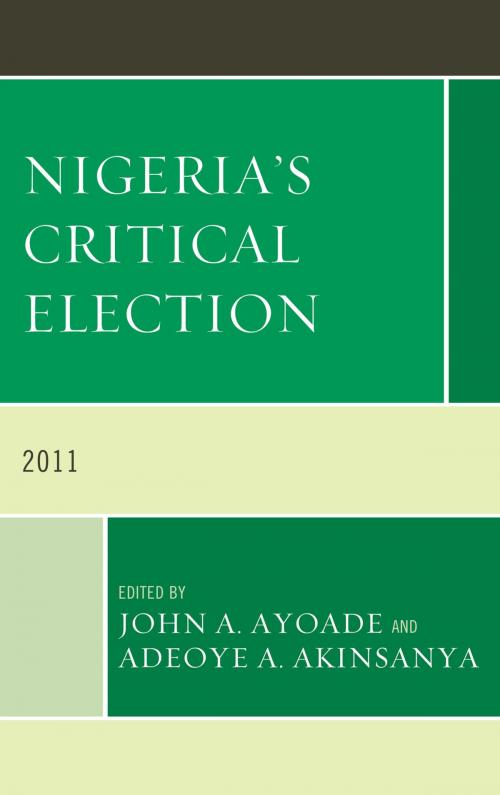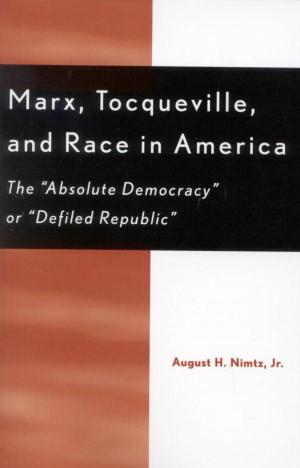Nigeria's Critical Election
2011
Nonfiction, Social & Cultural Studies, Political Science, Government, Elections, History, Africa, Social Science| Author: | ISBN: | 9780739175897 | |
| Publisher: | Lexington Books | Publication: | November 29, 2012 |
| Imprint: | Lexington Books | Language: | English |
| Author: | |
| ISBN: | 9780739175897 |
| Publisher: | Lexington Books |
| Publication: | November 29, 2012 |
| Imprint: | Lexington Books |
| Language: | English |
Elections have been central to regime collapse in Nigeria because they neither passed the test of citizens’ acceptability nor electoral neutrality. They always pushed the country to a dangerous brink which she has often survived after serious constitutional and political bruises. The general election of 1964 rocked the delicate balance of the country resulting in the military coup of January 15, 1966 and a thirty month civil war. The subsequent effort of the military at restructuring the country did not go far enough to win the civic confidence of the people. The military availed itself of another opportunity of tinkering with the system in 1993. However, it demonstrated that it was not immune to civic dishonesty when it annulled the widely acclaimed free and fair presidential election in June 12, 1993. By fits and starts, Nigeria held another election in 1999 which was tolerated only because of citizens’ fatigue of military rule. The elections of 2003 and 2007 were classic examples of make-belief democracy. The feeding of inequity and, if you will, domination, persisted. A combination of fortune, trickery and arm twisting produced a power shift in favour of Dr. Goodluck Ebele Azikwe Jonathan in April 2011. The subsequent attempt by the north to create a strategic consensus did not save it from being pushed into fringe politics forcing some of its spokespersons to vow that they will make governance impossible. The election was better than the worst but much still remains to be done.
Elections have been central to regime collapse in Nigeria because they neither passed the test of citizens’ acceptability nor electoral neutrality. They always pushed the country to a dangerous brink which she has often survived after serious constitutional and political bruises. The general election of 1964 rocked the delicate balance of the country resulting in the military coup of January 15, 1966 and a thirty month civil war. The subsequent effort of the military at restructuring the country did not go far enough to win the civic confidence of the people. The military availed itself of another opportunity of tinkering with the system in 1993. However, it demonstrated that it was not immune to civic dishonesty when it annulled the widely acclaimed free and fair presidential election in June 12, 1993. By fits and starts, Nigeria held another election in 1999 which was tolerated only because of citizens’ fatigue of military rule. The elections of 2003 and 2007 were classic examples of make-belief democracy. The feeding of inequity and, if you will, domination, persisted. A combination of fortune, trickery and arm twisting produced a power shift in favour of Dr. Goodluck Ebele Azikwe Jonathan in April 2011. The subsequent attempt by the north to create a strategic consensus did not save it from being pushed into fringe politics forcing some of its spokespersons to vow that they will make governance impossible. The election was better than the worst but much still remains to be done.















